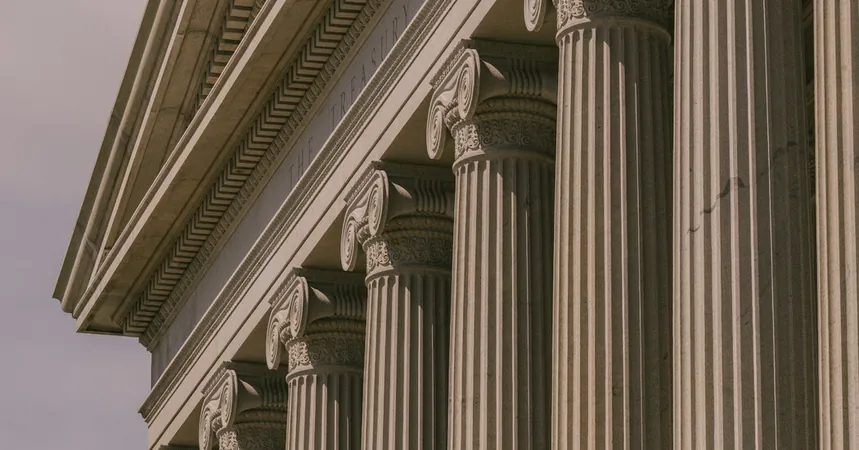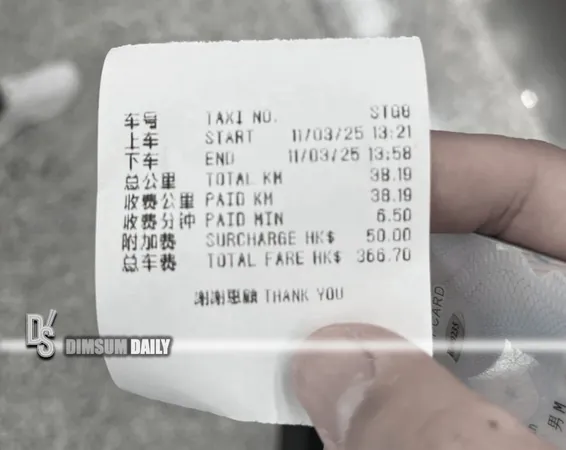
Risky Business: How Trump is Shaking Up U.S. Bond Markets
2025-04-13
Author: Chun
In the unpredictable world of finance, one constant has always stood strong: when anxiety hits, investors flock to U.S. government bonds. These Treasuries have long been viewed as a safe haven, a promise that no matter what crises unfold—financial meltdowns, wars, or natural disasters—the U.S. government will honor its debts.
However, recent volatility in the bond markets has raised alarms over President Trump's influence on this once-reliable sanctuary, casting doubt on the steadfastness of American debt. His ongoing trade war, particularly with China, threatens to spur a global economic downturn and has compromised America’s reputation as a stabilizing force.
Mark Blyth, a political economist from Brown University, puts it bluntly: 'The world has decided that the U.S. government has no idea what it’s doing.' This eroded trust appears to be driving recent bond sell-offs, as mass selling by investors compels the government to raise interest rates to attract buyers.
Last week, the yield on the critical 10-year Treasury bond surged to nearly 4.5 percent—the sharpest rise in nearly 25 years. Oddly, this spike occurred as the dollar's value dwindled, contradicting historical trends where tariffs typically strengthen the currency.
Complicating things further, hedge funds are offloading U.S. bonds to cover losses from falling stock prices. Some analysts speculate that China's central bank, holding significant U.S. Treasury debt, may be retaliating against American tariffs by selling off its holdings.
As a myriad of factors collide, the rise in bond yields signals an alarming shift in the perception of U.S. securities—from invulnerable assets to risky investments susceptible to market turmoil.
Under Trump, government bonds have transformed from 'information invariant assets'—which remain solid regardless of external news—into 'risk assets,' vulnerable to panic sales. While the administration claims that tariffs are designed to restore American manufacturing jobs, economists warn that without a coherent strategy, global trade is being undermined.
Worries grow that this trend could lead to an abrupt decline in foreign interest in U.S. debt, precipitating a dangerous rise in American interest rates. Justin Wolfers, an economist at the University of Michigan, remarks, 'People feel nervous about lending us money.' This malaise poses a threat to a unique privilege Americans have enjoyed—a lower rate of interest on borrowing due to the U.S. being a global safe haven.
Critics have long pointed out that dependency on foreign financing distorts the American economy. While it has allowed consumers to indulge in imports, it has hurt domestic industries and increased reliance on foreign entities for essential goods.
Trump’s strategies appear to have radicalized this scenario, creating uncertainty about America's role as a responsible financial player. Reports indicate that even a reconsideration of tariffs has done little to quell the sentiment that the U.S. could be perceived as a 'rogue actor' in global affairs.
Economists highlight that the inconsistency of tariffs threatens jobs, particularly in factories relying on imported components. The erratic nature of these measures raises questions about the administration's grasp of economic policy, with Simon Johnson, a Nobel laureate economist, stating that the market reacts poorly to the 'random crazy math' behind tariffs.
Higher interest rates will ultimately inflate the costs of borrowing, squeezing federal budgets and impacting funding for essential services. The ripple effects could lead to a broader recession as households face higher costs for mortgages and credit cards, curtailing their spending and stifling economic growth.
In this era of uncertainty, one thing is clear: the sanctity of American debt is under siege, and the market is watching closely.





 Brasil (PT)
Brasil (PT)
 Canada (EN)
Canada (EN)
 Chile (ES)
Chile (ES)
 Česko (CS)
Česko (CS)
 대한민국 (KO)
대한민국 (KO)
 España (ES)
España (ES)
 France (FR)
France (FR)
 Hong Kong (EN)
Hong Kong (EN)
 Italia (IT)
Italia (IT)
 日本 (JA)
日本 (JA)
 Magyarország (HU)
Magyarország (HU)
 Norge (NO)
Norge (NO)
 Polska (PL)
Polska (PL)
 Schweiz (DE)
Schweiz (DE)
 Singapore (EN)
Singapore (EN)
 Sverige (SV)
Sverige (SV)
 Suomi (FI)
Suomi (FI)
 Türkiye (TR)
Türkiye (TR)
 الإمارات العربية المتحدة (AR)
الإمارات العربية المتحدة (AR)